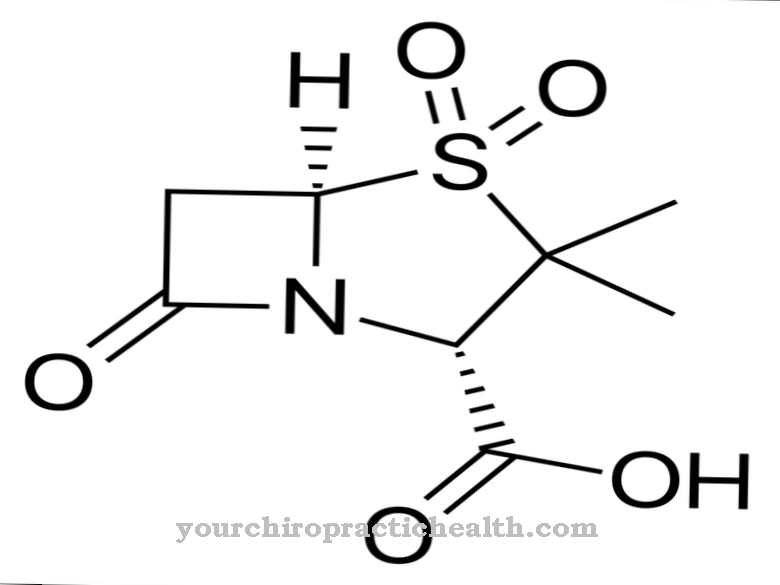With Aliskiren a drug is available for the treatment of arterial hypertension that acts as a renin inhibitor (renin inhibitor). It is sold under various trade names as a mono- and a combination preparation and requires a prescription. The drug was approved in the United States in March 2007, in Switzerland in June and in Germany in August.
What is aliskiren?

Aliskiren is a drug used to regulate high blood pressure. It inhibits the enzyme renin, whereby it intervenes in the renin-angiotensin-aldosterone system which regulates blood pressure. Among the known renin inhibitors, aliskiren is the only drug that has been approved to date. Two other preparations - Zankiren and Remikiren - are still awaiting approval.
The first renin inhibitors were antibodies that were directed directly against the enzyme renin. What lowered blood pressure in animal experiments was not further developed, especially since these first renin inhibitors could only be administered by injection. Through further intermediate steps, Aliskiren finally came to market maturity, which met expectations well.
Pharmacological effect
When it intervenes in the renin-angiotension-aldosterone system, aliskiren binds the enzyme renin and thus triggers subsequent biochemical processes.
Renin as a protease, an enzyme that splits proteins, converts angiotensinogen into angiotensin I, which in turn is converted into angiotensin II by an angiotensin converting enzyme. This can then independently trigger a vasoconstriction and cause an additional release of aldosterone. This creates a higher reabsorption of sodium ions and water in the renal collecting ducts, which increases the blood pressure.
Aliskiren binds the renin and thus effectively prevents its complex function. The processes described do not occur and the blood pressure can drop.
Aliskiren is taken orally once a day. Since it influences blood pressure by releasing renin, it takes about one to two weeks after the start of treatment until the first measurable therapeutic success. Aliskiren is almost always given in combination with other antihypertensive drugs. These can be, for example, diuretics prescribed to treat high blood pressure.
Medical application & use
The renin inhibitor aliskiren is a new and effective agent for the treatment of high blood pressure. The manufacturer Novartis even speaks of "a new dimension in hypertension treatment".
Since the renin inhibitor aliskiren intervenes very early in the renin-angiotensin-aldosterone system, it completely prevents the production of angiotensin II. This distinguishes the drug from other drugs that have often been used up to now, such as the ACE inhibitors. These only inhibit the ACE (angiotensin converting enzyme) which converts angiotensin I to angiotensin II, but not the enzyme chymase. As a result, the renin-angiotensin system is only partially inhibited.
In addition, renin inhibitors like aliskiren do not curb the breakdown of bradykinin, an inflammation mediator. When using ACE inhibitors, the bradykinin that is then present causes the familiar kinin cough, the typical side effect of ACE inhibitor medication. However, it remains to be seen whether the new drug aliskiren is therapeutically superior to the more conventional ACE inhibitors.
When taking aliskiren, it should be noted that an increased fat content in the food negatively affects the absorption of the active ingredient. Therefore, Aliskiren is not always so easy to control in its individual efficiency. In addition, there is the generally poor absorption of the renin inhibitors, which is often below 2% with oral medication.
The administration of aliskiren to children and adolescents is not recommended due to the lack of long-term results. Pregnant and breastfeeding women should also refrain.
Risks & side effects
Aliskiren therapy can cause unwanted side effects:
- Nausea, vomiting and diarrhea
- Upper respiratory tract infections
- to cough
- fatigue
- a headache
- Back pain
- Allergies
In the case of numerous chronic or acute illnesses and the corresponding medication intake, a detailed consultation between doctor and patient is essential before starting therapy with aliskiren.
The administration of aliskiren is contraindicated in the following diseases:
- Angioedema
- Diabetes mellitus
- impaired kidney function
Aliskiren is also contraindicated for medication with:
- Ciclosporin
- Itraconazole
- Quinidine
A responsible doctor will therefore check blood pressure, electrolyte values, laboratory values and kidney functions regularly in advance of a planned therapy with aliskiren and, if necessary, during the treatment period.
























.jpg)



